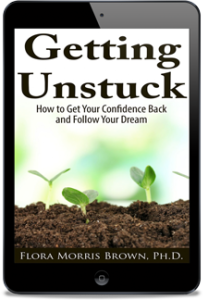Today’s post is a guest post by A. Michelle Blakeley, small business expert from Simply Mastered and radio host of Simple Truths for Women Entrepreneurs
Originally published Tuesday, July 20, 2010 at 8:50AM
 As entrepreneurs, it is impossible to have all the answers and sometimes we need a little assurance that we are moving in the right direction. You are often encouraged to seek outside help, support and guidance. Professional counsel, a colleague or close friend can be fantastic resource.
As entrepreneurs, it is impossible to have all the answers and sometimes we need a little assurance that we are moving in the right direction. You are often encouraged to seek outside help, support and guidance. Professional counsel, a colleague or close friend can be fantastic resource.
However, the caveat is that sometimes the advice you receive is not sage. Despite your need for guidance, sometimes you sense that what you are being told is flawed or just doesn’t sit right. When you seek the guidance of outside counsel, stay alert to your intuition, do your own due diligence and make sure they are providing you with an objective perspective and not “tainted glasses.”
Some savvy entrepreneurs shared some of their worst business advice with us and a lesson or two that can be learned along with it:
“If you build it, they will come.” Meaning just because your product or service is better, that does not determine the success of your business. How often have we seen or heard of great products, but the business failed to get off the ground? (J.Kaney, www.kaneyaerospace.com)
Lesson: The organization and development of your business is more important than the product or service you are selling.
“You need to have a downtown office.” Since I started my business four years ago, I’ve worked from home and I am glad I didn’t take this advice. Using extremely conservative numbers, I’ve saved at least $25,000 in this Internet-driven era. (D. Clark, www.dorieclark.com)
Lesson: It is unlikely your client will questioned your credibility because you choose not to spend money on an expensive “corporate headquarters.”
“Just do what you are passionate about and everything will fall into place.” While I do believe that being passionate about what I am doing is important and makes focusing on my business more enjoyable, without clearly defined goals, ways to reach them and giving all areas of business equal attention (even the areas I’m not passionate about), I know I wouldn’t have succeeded. (K. Gutierrez, www.assistantmatch.com)
Lesson: Passion is great, but you still need to a plan and the appropriate skills, systems, mindset and resources in place to ensure all areas of business are functioning properly.
“Don’t attend tradeshows” where I normally sold my handbag line and to book appointments in my NYC showroom instead. (S. Shaw, www.entreprenette.com)
Lesson: You always want to be where you have direct access to your target market and potential clients. Sometimes this can cost you and sometimes it can “cost” you.
“A DVD broker who told me that I should purchase 5000 copies of the program instead of printing on demand because the price was about two thirds less if I purchased the bundle.” (B. Michaelian, www.brittmichaelian.com)
Lesson: Before you buy 5000 of anything, you have to make sure that you know your ideal client, that your product will solve one of their biggest pains, that you have a clear marketing strategy to get the word out about your product and that there is a high level of demand for the product that you want to sell!
“Never compliment any of your people for doing a good job. If you do, they’ll get soft and lazy.” You’ll lose your authority over them. (B. Lampton, www.thecompletecommunicator.com)
Lesson: The work environment you cultivate will have a direct effect on your client service. Pride of ownership goes a long way with employees, staff and even sub-contractors and independent contractors.
“Not to worry about the future and things will take care of themselves when I want to sell my business.” (A. Bettencourt, www.exitplanpros.com)
Lesson: The worst thing a business owner can do is to not have an exit plan. Document your systems, so in case of an emergency, someone can help minimize your business down time. For solopreneurs/micro business owners, remember, even your database has value. Don’t just close your doors, take a close look at your assets and inventory for value to competitors and others. Also, give your clients notice before closing your doors and transition them to referrals whenever possible.
“Never give up; never listen to what others tell you.” (M. Nguyen, www.myartplot.com)
Lesson: If you keep doing what you’ve been doing, you’ll keep getting what you’ve been getting. Although that is true, when things are not happening correctly or when perspectives change, the idea to give up should be used to examine strategy and then define the situation. Don’t listen emotionally – but rather, listen analytically. Be prepared to objectively analyze your business …often.
“If I cut my fees in half I could double my client base.” Somehow working twice as hard for the same revenues didn’t really appeal to me.
(D. Furtwengler, www.furtwengler.com)
Lesson: Enough said.
“Sign a personal guarantee on the half million dollar company bank loan. If we go bankrupt and the bank tries to collect, you will pay pennies on the dollar.” Well, the bubble burst and $375,000 later plus over $25k in legal fees was not pennies on the dollar in my book! (G. Fernandez, www.babygoespro.com)
Lesson: Whenever you feel or sense apprehension, that’s a flag. Pay attention to that flag and trust your own intuition. Due diligence is an essential skill for business owners.
“Give up and be an employee. Being an entrepreneur was “too risky”.” (S. Raisty-Egami, www.sureproductconsulting.com My compensation and “job security” are now completely determined by the real value I bring to clients, and not by the shifting winds of office politics at a “big company” employer.
Lesson: Yes, being a business owner is not for everyone. However, for those who have the right mindset, capacity, tenacity and determination, entrepreneurship can be extremely rewarding emotionally and financially.
“Hire a high powered publicist” to help get my book the national coverage it needed. The decision to follow that advice has done wonders to get my publicist in front of the media where she was suppose to be taking me! (A. Zindler, www.homeofficemommy.com)
Lesson: Do your homework on those you welcome into your fold. Know what their motivation is to help you further your goals.
“Don’t focus on quality of performance…we all provide that. Focus on customer relations.” That firm eventually became the largest CPA firm bankruptcy in history, until it was recently surpassed by Arthur Anderson. Fortunately, I had the wisdom to leave before that. (J. Lerer, www.officezoneusa.com)
Lesson: Great product/service AND great client service go hand-in-hand. One simply cannot function without the other. They are interdependent on each other.
===============
For over 18 years, Simplicity Mastered™ founder and CEO A. Michelle Blakeley has owned or managed small businesses and nonprofit organizations. Expert in her field, Blakeley personally guides her clients out of their Business Brain Freeze™ to streamline operations, increase return on investment, and attain quantifiable results. Forbes.com and FinancialPost.com each recommended her as one of 30 Women Entrepreneurs to Follow on Twitter, joining the experts who know that Blakeley is a master at growing small businesses … and doing it with “Simplicity.”
===============
 As we gathered to celebrate our family reunion this weekend, I noticed the interactions as the family arrived. We had food prepared, t-shirts, amenity bags and games. Everyone was looking forward to our bus tour and banquet. But the thing that drew everyone the most was the wall sized family tree chart that my son, Herbert, created.
As we gathered to celebrate our family reunion this weekend, I noticed the interactions as the family arrived. We had food prepared, t-shirts, amenity bags and games. Everyone was looking forward to our bus tour and banquet. But the thing that drew everyone the most was the wall sized family tree chart that my son, Herbert, created. A key part of achieving your goals is planning. Maybe your goal requires some extensive planning, but there is a point at which planning becomes procrastination. If you examine why you are procrastinating, you may discover that you are afraid of the unknown. We all are. So don’t let that stop you.
A key part of achieving your goals is planning. Maybe your goal requires some extensive planning, but there is a point at which planning becomes procrastination. If you examine why you are procrastinating, you may discover that you are afraid of the unknown. We all are. So don’t let that stop you.


Recent Comments